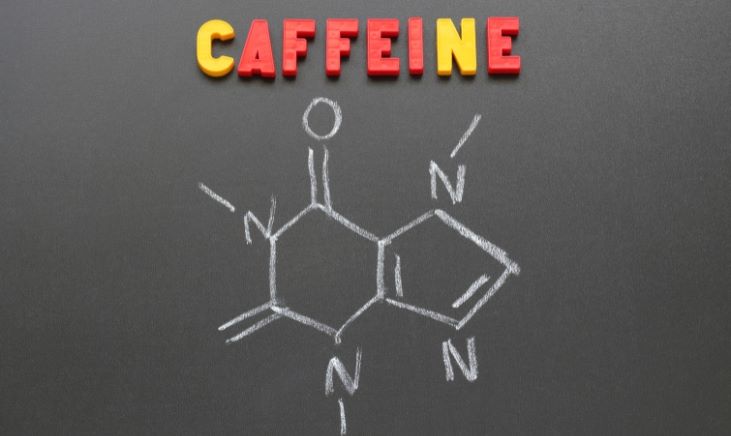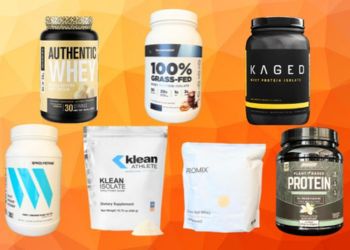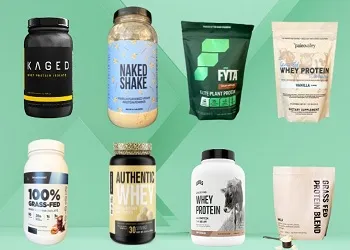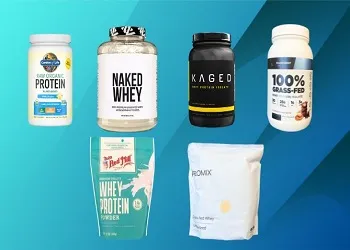Caffeine may be an integral part of your morning. Sometimes it can even feel like a magic pick-me-up when you hit a big slump mid-day. Maybe you’re also an electrolyte-lover and use supplements to help rehydrate and replenish electrolytes regularly.
But, you may be wondering, do electrolytes have caffeine? Do the electrolyte supplements I’m taking have caffeine? Do I want them to? We’re here to answer all those questions for you and more.
Table of Contents
Short Summary
- Electrolytes are minerals that contribute to athletic performance by maintaining proper hydration balance and facilitating muscle contraction.
- Caffeine is a stimulant that provides our bodies with a boost of energy, which can translate into improved performance.
- Electrolytes and caffeine are two separate substances, but they can be used together for a synergistic improvement in performance.
- Caffeinated electrolyte supplements are available for athletes and exercisers looking to reap the benefits of both compounds.
Electrolytes and Athletic Performance
Electrolyte tablets, powders, sports drinks, and other supplements are often marketed specifically to athletes. Let’s dive into how and why these supplements help boost athletic performance.
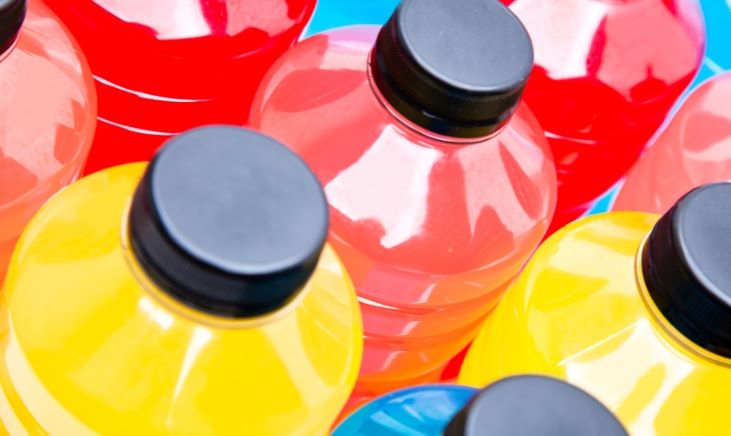
What Are Electrolytes?
Electrolytes are electrically charged minerals found inside our bodies. They are important to keep the body functioning properly. Specifically, they are key for athletic performance because they help regulate the amount of water in our bodies and maintain fluid balance. Proper hydration is key for maintaining high performance levels. They also play vital roles in muscle and nerve function.
Additionally, electrolytes:
- Regulate pH
- Move nutrients into cells
- Regulate heart rate
- Stabilize blood pressure
- Maintain bone health
Some essential electrolytes include:
- Sodium
- Potassium
- Phosphorus
- Calcium
- Chloride
- Magnesium
How Do Electrolytes Work?
The electrical charge of electrolytes is what allows them to function within our bodies. Some electrolytes carry a positive charge while others carry a negative charge. Our bodies are always striving for balance, often referred to as homeostasis, so balancing these charges is the goal. The positive and negative charges allow for transmission of nutrients and waste into and out of our cells. They also facilitate the balance of fluid by moving water into and out of cells. Electrolyte charges are also responsible for muscle contraction.
Are Electrolytes Necessary for Athletes?
Electrolytes are necessary for all of us. However, most athletes and active individuals have increased electrolyte needs. When we sweat, we lose electrolytes and fluid. If we only replace the fluid we lose, we end up with an imbalance of electrolytes. Replacing both the fluid and electrolytes we lose when we sweat is crucial to maintaining optimal balance within our bodies.
How do you know when you need to replace electrolytes? The “3H” criteria can help you determine if you need to replenish with plain water or add electrolytes. The 3 H’s are:
- Hour: Any workout that is 60 minutes or more
- Hot: Workouts in hot and/or humid weather that are completed outside or in an area without air conditioning
- Hard: challenging, intense physical activity
Athletes and generally active people alike can use these criteria for replenishing electrolytes.
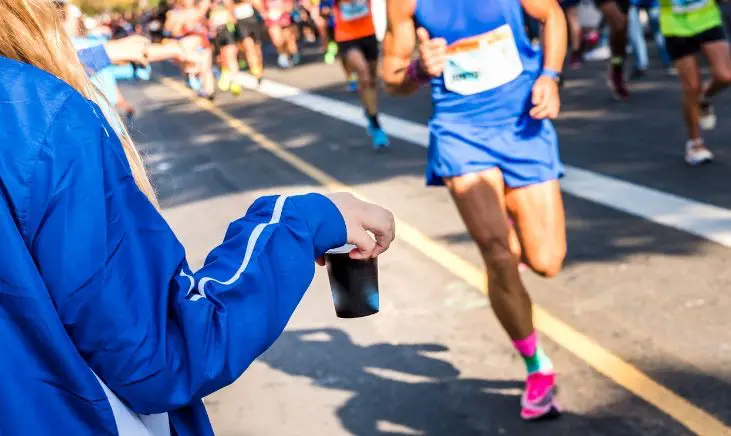
Benefits of Electrolyte Drinks for Athletes
As we just mentioned, rehydrating and replenishing electrolytes is necessary after intense workouts. Like we discussed earlier, the electric charge of electrolyte minerals allows them to move fluid and nutrients into and out of our cells. When we replenish electrolytes lost, it helps our bodies rehydrate by holding onto the water we consume and bringing it into our cells.
Caffeine and Athletic Performance
Energy drinks are also often marketed to athletes and active people in general. Let’s look at how they may benefit you in your training.
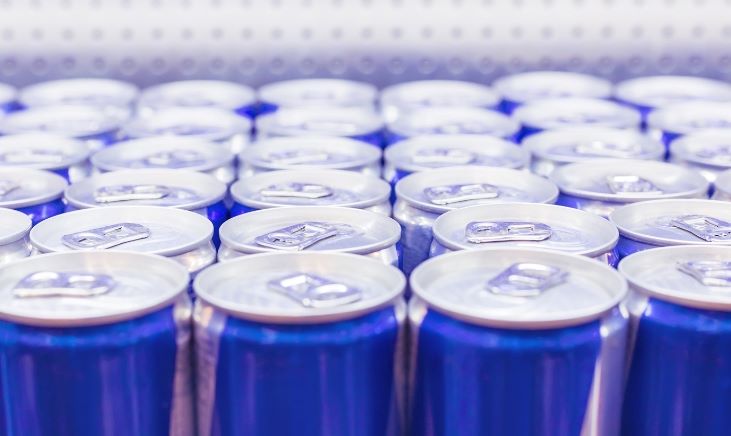
What is Caffeine?
Caffeine is just a magic substance in coffee and energy drinks, right? But, what is it really? It is a naturally occurring substance found in coffee, tea, and other plants. Caffeine can also be synthetically made in a lab and added to food, drinks, and medications.
How Does Caffeine Work?
Caffeine is a stimulant, meaning that it stimulates our central nervous system, including our brain. Caffeine can give you a boost of energy and make you feel more awake.
Caffeine levels peak in your bloodstream within one hour of consumption, and you will continue to feel its effects for four to six hours after eating or drinking it.
Is Caffeine Necessary for Athletes?
While it’s certainly not necessary for athletes, the energy boost from caffeine can provide a pick-me-up for a hard training session or competition. Many athletes and general exercisers use caffeine in the form of coffee, energy drinks, or a preworkout supplement to provide them with a hit of energy before starting intense physical activity.
As with many supplements, there are some cautions when using caffeine. Caffeine is a diuretic, which means it stimulates urination to remove salt and water. Theoretically, if you are training hard, this can be detrimental to performance and the exact reason you are consuming electrolyte beverages.
However, one small study found that although caffeine increased electrolyte loss via sweat, the effect was not enough to affect dehydration or electrolyte levels within the subjects’ blood even when exercising for two hours in a hot climate. Another group of researchers further stated that a tolerance to caffeine from regular consumption decreases the likelihood of a detrimental effect on fluid and electrolyte balance within the body.
Another important consideration is that some groups of people are cautioned against using caffeine or are advised to decrease their caffeine intake in general. This includes:
- Pregnant or breastfeeding individuals
- Anyone with a sleep disorder
- Individuals who suffer from migraines or chronic headaches
- Anxiety sufferers
- People with GERD or stomach ulcers
- Individuals with high blood pressure or heart arrhythmias
- Anyone taking other stimulant medications
- Children and young teenagers
Benefits of Caffeine for Athletes
Research supports that caffeine supplementation can provide a boost in athletic performance. However, the details on how exactly it does so are not totally clear at this point.
If you are someone who drinks caffeine, maybe you have noticed that it can provide a boost in energy to push through a tough workout session. You may also notice it can help you feel awake if you are someone who trains early in the morning.
However, as we just discussed, these benefits don’t come without a few cautions. Additionally, it’s worth noting that the National Collegiate Athletic Association (NCAA) actually lists caffeine on its list of banned stimulant drugs. This further supports that it is a performance-enhancing substance. However, it is also worth noting that your morning cup of coffee wouldn’t be enough to trigger a positive test for caffeine. Daily excessive consumption is needed to achieve banned levels.
How Much Caffeine Should Athletes Consume?
One recent review of current research suggested that athletes need to consume at least 3 milligrams of caffeine per kilogram of body mass to see an improvement in their sports performance. To put this into perspective, a 150-pound person needs to drink about 205 milligrams of caffeine to see a benefit while a 200-pound person needs to drink about 275 milligrams to see the improvements.
For context, here are the average caffeine levels of common beverages:
- 8 ounces of coffee: 95-200 milligrams
- 8 ounces of an energy drink: 70-100 milligrams (this varies greatly with some containing much higher caffeine levels)
- 8 ounces of tea: 14-60 milligrams
- 12 ounce can of cola: 35-45 milligrams
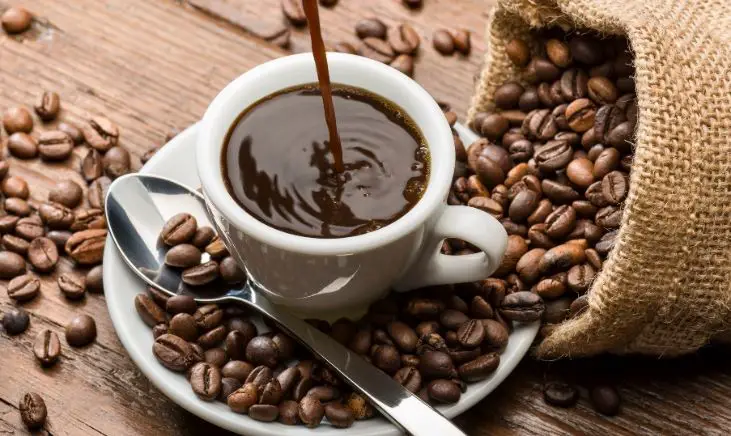
How Much Caffeine is Too Much?
As with everything, there is such a thing as too much of a good thing. If you’ve ever consumed too much coffee on an empty stomach, you’ve likely experienced this firsthand. In general, experts recommend a maximum caffeine intake of 400 milligrams daily. Simple math will tell you this is about four cups of the average brewed coffee.
Can Athletes Boost Performance by Mixing Electrolytes and Caffeine?
While this area is not well researched and more studies are needed to determine the true effects of combining electrolytes and caffeine, the current research on each supplement alone allows us to assume that there would be a performance benefit to taking both supplements together.
We know that electrolytes help replenish and rehydrate to allow continued efforts. We also know that caffeine boosts performance. Further, some studies have shown that while caffeine is a diuretic, it does not seem to have a large enough effect to cause dehydration that would harm performance and/or “cancel out” electrolyte use.
If you are interested in taking a caffeinated electrolyte supplement, there are a few currently available on the market.
The Best Caffeinated Electrolyte Replacements
Nuun
Nuun Sport electrolyte tablets come in both caffeinated and non-caffeinated varieties. Nuun comes in tablet form and quickly dissolves in water. Each electrolyte tablet contains 40 milligrams of caffeine, along with sodium, potassium, magnesium, and calcium.
Tailwind
Tailwind Endurance Fuel is also available both with or without caffeine. Tailwind comes in powder form to mix with water and is designed to fuel endurance athletes. It contains 35 milligrams of caffeine per serving, in addition to sodium, potassium, magnesium, and calcium.
Liquid IV
Liquid IV is another electrolyte supplement that is available with added caffeine. Liquid IV comes in individual powder packets to mix with water and start replenishing. Each packet contains 100 milligrams of caffeine with their traditional sodium and potassium blend.
Hydrant
Hydrant offers another electrolyte and caffeine combination supplement. Hydrant is a powdered option that contains a combination of 100 milligrams of caffeine per serving with sodium, potassium, and magnesium.
Optimum Nutrition Essential Amin.O. Energy + Electrolytes
Optimum Nutrition offers two versions of their Essential Amin.O. Energy + Electrolytes. One is a powdered supplement; the other is a canned sparkling beverage. Each one contains a combination of 100 milligrams of caffeine with electrolytes for rehydration and amino acids for recovery.
Summary
Electrolytes and caffeine both play roles in athletic performance. Electrolytes help maintain proper hydration status and muscle function. Refueling with fluid and electrolytes helps replenish electrolytes lost in sweat and helps ensure optimal performance. Caffeine is a stimulant that can provide a boost to fuel us through training or competitions. Some supplements contain both electrolytes and caffeine if you are looking to reap the benefits of both together.
Frequently Asked Questions
Do electrolytes keep you awake?
Electrolytes themselves do not keep you awake. Unlike caffeine, which is a stimulant, electrolytes are simply minerals that our bodies need to function.
However, dehydration can cause fatigue, trouble focusing, and tiredness. If you are dehydrated, consuming fluids with electrolytes can be one of the best ways to rehydrate your body. In theory, if you are feeling sleepy from being dehydrated, drinking an electrolyte beverage may give you a pick-me-up.
Does the Gatorade electrolyte drink have caffeine?
Gatorade does not contain caffeine. Its ingredients include water, sugar, and electrolytes, as well as citric acid and additional ingredients to add flavor and color.
References
Armstrong, Lawrence E. “Caffeine, Body Fluid-Electrolyte Balance, and Exercise Performance.” International Journal of Sport Nutrition and Exercise Metabolism, vol. 12, no. 2, June 2002, pp. 189–206, https://doi.org/10.1123/ijsnem.12.2.189.
Cleveland Clinic. “Electrolytes: Types, Purpose and Normal Levels.” Cleveland Clinic, 24 Sept. 2021, my.clevelandclinic.org/health/diagnostics/21790-electrolytes.
DEL COSO, JUAN, et al. “Caffeine during Exercise in the Heat.” Medicine & Science in Sports & Exercise, vol. 41, no. 1, Jan. 2009, pp. 164–173, https://doi.org/10.1249/mss.0b013e318184f45e.
Glaister, Mark, and Conor Gissane. “Caffeine and Physiological Responses to Submaximal Exercise: A Meta-Analysis.” International Journal of Sports Physiology and Performance, vol. 13, no. 4, Apr. 2018, pp. 402–411, journals.humankinetics.com/view/journals/ijspp/13/4/article-p402.xml, https://doi.org/10.1123/ijspp.2017-0312.
Jiménez, Sergio L., et al. “Caffeinated Drinks and Physical Performance in Sport: A Systematic Review.” Nutrients, vol. 13, no. 9, 25 Aug. 2021, p. 2944, www.ncbi.nlm.nih.gov/pmc/articles/PMC8466927/, https://doi.org/10.3390/nu13092944.
Mayo Clinic. “Caffeine: How Much Is Too Much?” Mayo Clinic, Mayo Foundation for Medical Education and Research, 6 Mar. 2020, www.mayoclinic.org/healthy-lifestyle/nutrition-and-healthy-eating/in-depth/caffeine/art-20045678.
MedlinePlus. “Fluid and Electrolyte Balance.” Medlineplus.gov, National Library of Medicine, 20 June 2016, medlineplus.gov/fluidandelectrolytebalance.html.
National Library of Medicine. “Caffeine.” Medlineplus.gov, 8 Sept. 2021, medlineplus.gov/caffeine.html.
NCAA. “NCAA Banned Substances.” NCAA.org, 14 July 2022, www.ncaa.org/sports/2015/6/10/ncaa-banned-substances.aspx.
